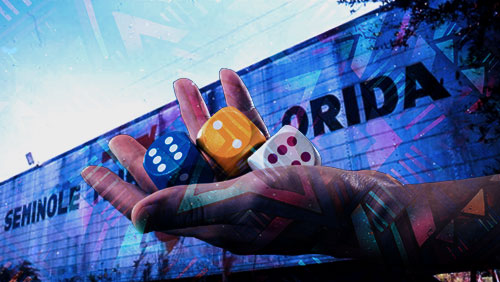State attorneys and the Seminole Tribe immediately locked horns inside a Florida courtroom as the trial that could shape the future of gambling in the Sunshine State begins.  The Daily Mail reported that both parties quickly traded allegations of reneging on their 2010 “compact” before U.S. District Judge Robert Hinkle. In 2010, the Seminole Tribe and Florida agreed for the former to keep blackjack tables at its casinos as well as slot machines at most of its locations. Florida has collected nearly $1.7 billion from the tribe as a result of the agreement. The legal tussle began when the Florida Legislature thumbed down in 2015 a new larger deal, which will allow the tribe to offer roulette. For the Florida State, they prayed to the court to order the Seminole Tribe to remove the blackjack tables that are still in use. During the trial, the Seminole Tribes insisted that state regulators violated the monopoly they had guaranteed to the Seminoles shortly after the 2010 deal took effect, by permitting race tracks to offer types of card games and slot machines. “The entire landscape that was contemplated at the time the compact was negotiated has changed radically,” Attorney Barry Richard, counsel of the Tribe, told the judge, according to the news agency. Richard further alleged that the state violated the federal gambling laws when legislators and Gov. Rick Scott pressured the tribe to increase its financial payout to the state before restarting negotiations. But State attorneys contended that the compact stipulates that the Seminoles will cease its blackjack tables operation absent an extension. They also pointed out that blackjack tables were installed as part of the 2007 agreement and not the 2010 agreement. They said the Florida Supreme Court has invalidated the 2007 agreement. “Why are we here? Because the tribe has no contractual right or other right to get what it wanted,” said J. Carter Andersen, a private attorney representing the gambling regulators. Meanwhile, Seminole Gaming CEO Jim Allen took the witness stand and told the court that there are nearly 3,700 jobs at stake on the blackjack tables alone, if the Judge will rule against the tribe. The Hinkle-led trial will reportedly last three days, with no immediate ruling expected.
The Daily Mail reported that both parties quickly traded allegations of reneging on their 2010 “compact” before U.S. District Judge Robert Hinkle. In 2010, the Seminole Tribe and Florida agreed for the former to keep blackjack tables at its casinos as well as slot machines at most of its locations. Florida has collected nearly $1.7 billion from the tribe as a result of the agreement. The legal tussle began when the Florida Legislature thumbed down in 2015 a new larger deal, which will allow the tribe to offer roulette. For the Florida State, they prayed to the court to order the Seminole Tribe to remove the blackjack tables that are still in use. During the trial, the Seminole Tribes insisted that state regulators violated the monopoly they had guaranteed to the Seminoles shortly after the 2010 deal took effect, by permitting race tracks to offer types of card games and slot machines. “The entire landscape that was contemplated at the time the compact was negotiated has changed radically,” Attorney Barry Richard, counsel of the Tribe, told the judge, according to the news agency. Richard further alleged that the state violated the federal gambling laws when legislators and Gov. Rick Scott pressured the tribe to increase its financial payout to the state before restarting negotiations. But State attorneys contended that the compact stipulates that the Seminoles will cease its blackjack tables operation absent an extension. They also pointed out that blackjack tables were installed as part of the 2007 agreement and not the 2010 agreement. They said the Florida Supreme Court has invalidated the 2007 agreement. “Why are we here? Because the tribe has no contractual right or other right to get what it wanted,” said J. Carter Andersen, a private attorney representing the gambling regulators. Meanwhile, Seminole Gaming CEO Jim Allen took the witness stand and told the court that there are nearly 3,700 jobs at stake on the blackjack tables alone, if the Judge will rule against the tribe. The Hinkle-led trial will reportedly last three days, with no immediate ruling expected.